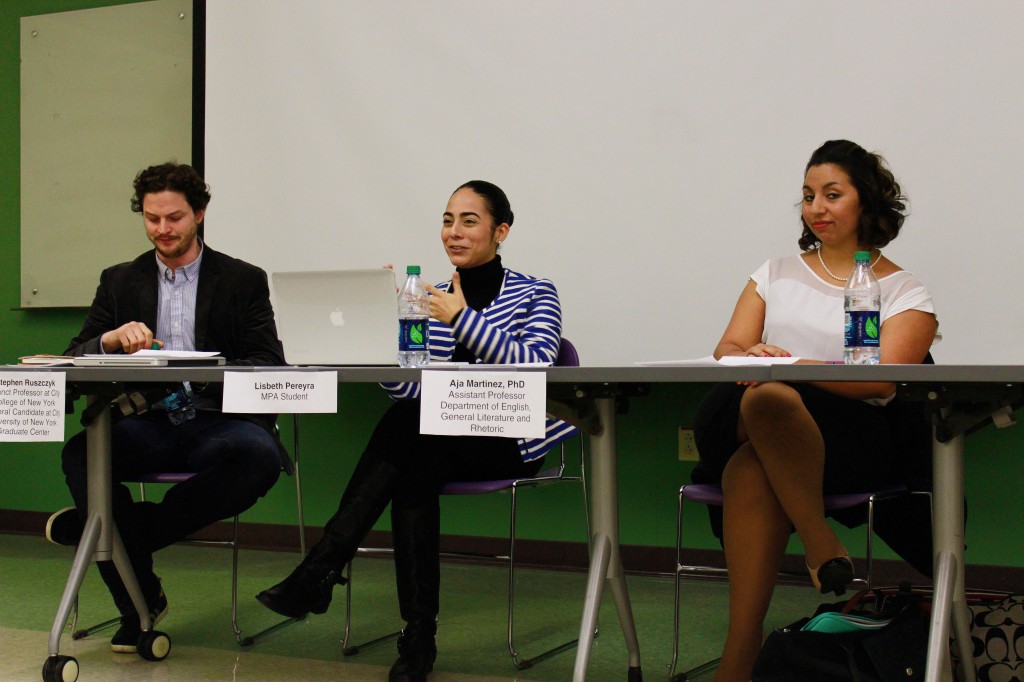
Around the United States, there are millions of young men and women who are essentially barred from going to college.
It is not because their grades aren’t good enough or because of preexisting debt, nor is it because they are a felon or a dangerous criminal. It is because they are undocumented immigrants.
These “Dreamers” are residents of the U.S. who are under 30 and entered the country as minors at least five years ago. They have no criminal record, but because they lack proper paperwork, they cannot apply for financial aid and thus often cannot afford higher education.
The name refers to people affected by the DREAM Act, a bill last proposed in Congress in 2012, which would give temporary immunity and educational support to undocumented residents who came to the U.S. as minors.
On Wednesday in the Old University Union, the Binghamton University Masters of Public Administration department (MPA) hosted a panel of speakers to address issues for the millions of immigrants in the U.S. who live in the shadows. The event was part of a series of current events topics that the MPA department hosts every semester.
Lisbeth Pereyra, a second-year graduate student studying public administration, recounted her family’s experiences coming from the Dominican Republic to New York City.
“It’s hard to look for a job, find a school, organize finances,” Pereyra said. “There’s rules, regulations and getting to know how things work here.”
She said that although her family came to the U.S. legally, life was difficult, especially for her mother who already had multiple children and struggled to learn English.
“The resources we have here are often absent in our countries,” Pereyra said. “But no one talks about the challenges, even family members brush over them.”
Stephen Ruszczyk, an adjunct professor of quantitative methodology at City College of New York and a doctoral candidate, said that new residents of the U.S. simply do not have the same access to information as established American citizens do.
“People talk about going to college and taking the SAT, when you are young, like it is some bad joke,” Ruszczyk said. “But when you’re an immigrant it’s just three letters and you have no idea how important the test is.”
All the panelists said federal and local governments need to do more to accommodate and support documented and undocumented residents living in the country.
This includes passing the DREAM Act to protect students who want legal protections to apply for college, and also supporting immigrant communities through better law enforcement and financial opportunities.
“There are 10 to 12 million people without legal status in this country — that’s more people than in all of Sweden,” Ruszczyk said. “These are not criminals; they are caught in clumsy policy.”
However, according to Aja Martinez, BU English and rhetoric professor, the U.S. government has a long history of discriminatory policies toward immigrants based on race and judgments of moral character based primarily on a person’s education and employment.
By focusing on the Dreamers, she said, activists lost sight of all the other immigrants that deserved help.
“Who’s being left out in this quota system?” Martinez asked. “With thousands of deportations by this administration, who’s left in the blind-spot? There’s tons of people that are not part of this narrative of dreamers.”
Maria Wadowska, a sophomore majoring in integrative neuroscience, said that the panel did not accurately represent immigration issues.
“I’m from Poland and as a member of DACA [Deferred Action for Childhood Arrivals] and a member of the Dream movement I was personally affected by these policies,” Wadowska said. “I wish they had a person who had actually struggled here illegally.”


